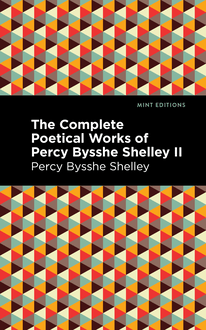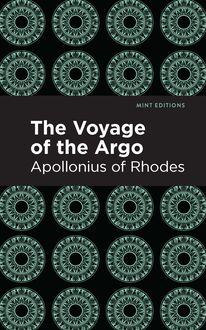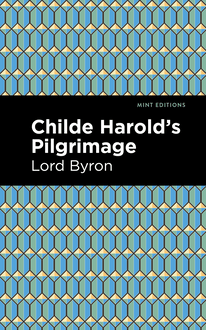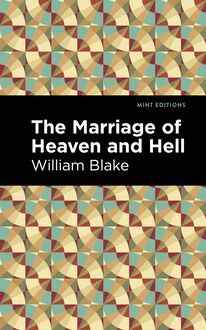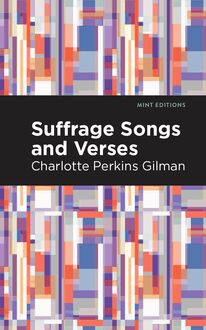-
 Univers
Univers
-
 Ebooks
Ebooks
-
 Livres audio
Livres audio
-
 Presse
Presse
-
 Podcasts
Podcasts
-
 BD
BD
-
 Documents
Documents
-
- Cours
- Révisions
- Ressources pédagogiques
- Sciences de l’éducation
- Manuels scolaires
- Langues
- Travaux de classe
- Annales de BEP
- Etudes supérieures
- Maternelle et primaire
- Fiches de lecture
- Orientation scolaire
- Méthodologie
- Corrigés de devoir
- Annales d’examens et concours
- Annales du bac
- Annales du brevet
- Rapports de stage
La lecture à portée de main

Vous pourrez modifier la taille du texte de cet ouvrage
Découvre YouScribe en t'inscrivant gratuitement
Je m'inscrisDécouvre YouScribe en t'inscrivant gratuitement
Je m'inscrisEn savoir plus
Vous pourrez modifier la taille du texte de cet ouvrage
En savoir plus

Description
Troilus and Criseyde (c.1385) is an epic poem written by English poet Geoffrey Chaucer. Composed in Middle English, Troilus and Criseyde is the story of two lovers forced apart by the Greek siege of Troy. Often considered Chaucer’s finest work for its structural consistency and completeness, the poem adapts Homer’s Iliad and other ancient sources which expand on its tradition to tell a Christian moral tale about the importance of faith and the sacred nature of human love.
After mocking the god of love, Troilus—a Trojan warrior and the youngest son of Priam—is struck with desire for the beautiful Criseyde, the daughter of a prophet named Calchas. With her uncle Pandarus’ help, the two begin to exchange letters before consummating their love in secret. Meanwhile, Calchas—who has predicted the fall of Troy and abandoned the city to join the Greeks—is negotiating with both sides in order to facilitate the release of Antenor in exchange for his daughter, Criseyde. Although Troilus and Hector object to the plan, Criseyde is sent to the Greek camp. Despite promising to return to Troy and to remain faithful to Troilus, she secretly doubts herself, and is soon courted by the Greek hero Diomede. Troilus and Criseyde, a masterpiece of medieval literature, is a tragic story of desire, will, and the divine that continues to move readers centuries after it was written.
With a beautifully designed cover and professionally typeset manuscript, this edition of Geoffrey Chaucer’s Troilus and Criseyde is a classic of English literature reimagined for modern readers.
Sujets
Informations
| Publié par | Mint Editions |
| Date de parution | 08 décembre 2020 |
| Nombre de lectures | 0 |
| EAN13 | 9781513274096 |
| Langue | English |
Informations légales : prix de location à la page 0,0500€. Cette information est donnée uniquement à titre indicatif conformément à la législation en vigueur.
Extrait
Troilus and Criseyde
Geoffrey Chaucer
Troilus and Criseyde was first published in the 1380’s.
This edition published by Mint Editions 2021.
ISBN 9781513269092 | E-ISBN 9781513274096
Published by Mint Editions®
minteditionbooks.com
Publishing Director: Jennifer Newens
Design & Production: Rachel Lopez Metzger
Typesetting: Westchester Publishing Services
C ONTENTS B OOK 1 B OOK 2 B OOK 3 B OOK 4 B OOK 5
Book 1
The double sorwe of Troilus to tellen,
That was the king Priamus sone of Troye,
In lovinge, how his aventures fellen
Fro wo to wele, and after out of Ioye,
My purpos is, er that I parte fro ye.
Thesiphone, thou help me for tendyte
Thise woful vers, that wepen as I wryte!
To thee clepe I, thou goddesse of torment,
Thou cruel Furie, sorwing ever in peyne;
Help me, that am the sorwful instrument
That helpeth lovers, as I can, to pleyne!
For wel sit it, the sothe for to seyne,
A woful wight to han a drery fere,
And, to a sorwful tale, a sory chere.
For I, that god of Loves servaunts serve,
Ne dar to Love, for myn unlyklinesse,
Preyen for speed, al sholde I therfor sterve,
So fer am I fro his help in derknesse;
But nathelees, if this may doon gladnesse
To any lover, and his cause avayle,
Have he my thank, and myn be this travayle!
But ye loveres, that bathen in gladnesse,
If any drope of pitee in yow be,
Remembreth yow on passed hevinesse
That ye han felt, and on the adversitee
Of othere folk, and thenketh how that ye
Han felt that Love dorste yow displese;
Or ye han wonne hym with to greet an ese.
And preyeth for hem that ben in the cas
Of Troilus, as ye may after here,
That love hem bringe in hevene to solas,
And eek for me preyeth to god so dere,
That I have might to shewe, in som manere,
Swich peyne and wo as Loves folk endure,
In Troilus unsely aventure.
And biddeth eek for hem that been despeyred
In love, that never nil recovered be,
And eek for hem that falsly been apeyred
Thorugh wikked tonges, be it he or she;
Thus biddeth god, for his benignitee,
So graunte hem sone out of this world to pace,
That been despeyred out of Loves grace.
And biddeth eek for hem that been at ese,
That god hem graunte ay good perseveraunce,
And sende hem might hir ladies so to plese,
That it to Love be worship and plesaunce.
For so hope I my soule best avaunce,
To preye for hem that Loves servaunts be,
And wryte hir wo, and live in charitee.
And for to have of hem compassioun
As though I were hir owene brother dere.
Now herkeneth with a gode entencioun,
For now wol I gon streight to my matere,
In whiche ye may the double sorwes here
Of Troilus, in loving of Criseyde,
And how that she forsook him er she deyde.
It is wel wist, how that the Grekes stronge
In armes with a thousand shippes wente
To Troyewardes, and the citee longe
Assegeden neigh ten yeer er they stente,
And, in diverse wyse and oon entente,
The ravisshing to wreken of Eleyne,
By Paris doon, they wroughten al hir peyne.
Now fil it so, that in the toun ther was
Dwellinge a lord of greet auctoritee,
A gret devyn that cleped was Calkas,
That in science so expert was, that he
Knew wel that Troye sholde destroyed be,
By answere of his god, that highte thus,
Daun Phebus or Apollo Delphicus.
So whan this Calkas knew by calculinge,
And eek by answere of this Appollo,
That Grekes sholden swich a peple bringe,
Thorugh which that Troye moste been for-do,
He caste anoon out of the toun to go;
For wel wiste he, by sort, that Troye sholde
Destroyed ben, ye, wolde who-so nolde.
For which, for to departen softely
Took purpos ful this forknowinge wyse,
And to the Grekes ost ful prively
He stal anoon; and they, in curteys wyse,
Hym deden bothe worship and servyse,
In trust that he hath conning hem to rede
In every peril which that is to drede.
The noyse up roos, whan it was first aspyed,
Thorugh al the toun, and generally was spoken,
That Calkas traytor fled was, and allyed
With hem of Grece; and casten to ben wroken
On him that falsly hadde his feith so broken;
And seyden, he and al his kin at ones
Ben worthy for to brennen, fel and bones.
Now hadde Calkas left, in this meschaunce,
Al unwist of this false and wikked dede,
His doughter, which that was in gret penaunce,
For of hir lyf she was ful sore in drede,
As she that niste what was best to rede;
For bothe a widowe was she, and allone
Of any freend to whom she dorste hir mone.
Criseyde was this lady name a-right;
As to my dome, in al Troyes citee
Nas noon so fair, for passing every wight
So aungellyk was hir natyf beautee,
That lyk a thing immortal semed she,
As doth an hevenish parfit creature,
That doun were sent in scorning of nature.
This lady, which that al-day herde at ere
Hir fadres shame, his falsnesse and tresoun,
Wel nigh out of hir wit for sorwe and fere,
In widewes habit large of samit broun,
On knees she fil biforn Ector a-doun;
With pitous voys, and tendrely wepinge,
His mercy bad, hir-selven excusinge.
Now was this Ector pitous of nature,
And saw that she was sorwfully bigoon,
And that she was so fair a creature;
Of his goodnesse he gladed hir anoon,
And seyde, ‘Lat your fadres treson goon
Forth with mischaunce, and ye your-self, in Ioye,
Dwelleth with us, whyl you good list, in Troye.
‘And al thonour that men may doon yow have,
As ferforth as your fader dwelled here,
Ye shul han, and your body shal men save,
As fer as I may ought enquere or here.’
And she him thonked with ful humble chere,
And ofter wolde, and it hadde ben his wille,
And took hir leve, and hoom, and held hir stille.
And in hir hous she abood with swich meynee
As to hir honour nede was to holde;
And whyl she was dwellinge in that citee,
Kepte hir estat, and bothe of yonge and olde
Ful wel beloved, and wel men of hir tolde.
But whether that she children hadde or noon,
I rede it naught; therfore I late it goon.
The thinges fellen, as they doon of werre,
Bitwixen hem of Troye and Grekes ofte;
For som day boughten they of Troye it derre,
And eft the Grekes founden no thing softe
The folk of Troye; and thus fortune on-lofte,
And under eft, gan hem to wheelen bothe
After hir cours, ay whyl they were wrothe.
But how this toun com to destruccioun
Ne falleth nought to purpos me to telle;
For it were a long digressioun
Fro my matere, and yow to longe dwelle.
But the Troyane gestes, as they felle,
In Omer, or in Dares, or in Dyte,
Who-so that can, may rede hem as they wryte.
But though that Grekes hem of Troye shetten,
And hir citee bisegede al a-boute,
Hir olde usage wolde they not letten,
As for to honoure hir goddes ful devoute;
But aldermost in honour, out of doute,
They hadde a relik hight Palladion,
That was hir trist a-boven everichon.
And so bifel, whan comen was the tyme
Of Aperil, whan clothed is the mede
With newe grene, of lusty Ver the pryme,
And swote smellen floures whyte and rede,
In sondry wyses shewed, as I rede,
The folk of Troye hir observaunces olde,
Palladiones feste for to holde.
And to the temple, in al hir beste wyse,
In general, ther wente many a wight,
To herknen of Palladion servyse;
And namely, so many a lusty knight,
So many a lady fresh and mayden bright,
Ful wel arayed, bothe moste and leste,
Ye, bothe for the seson and the feste.
Among thise othere folk was Criseyda,
In widewes habite blak; but nathelees,
Right as our firste lettre is now an A,
In beautee first so stood she, makelees;
Hir godly looking gladede al the prees.
Nas never seyn thing to ben preysed derre,
Nor under cloude blak so bright a sterre
As was Criseyde, as folk seyde everichoon
That hir behelden in hir blake wede;
And yet she stood ful lowe and stille alloon,
Bihinden othere folk, in litel brede,
And neigh the dore, ay under shames drede,
Simple of a-tyr, and debonaire of chere,
With ful assured loking and manere.
This Troilus, as he was wont to gyde
His yonge knightes, ladde hem up and doun
In thilke large temple on every syde,
Biholding ay the ladyes of the toun,
Now here, now there, for no devocioun
Hadde he to noon, to reven him his reste,
But gan to preyse and lakken whom him leste.
And in his walk ful fast he gan to wayten
If knight or squyer of his companye
Gan for to syke, or lete his eyen bayten
On any woman that he coude aspye;
He wolde smyle, and holden it folye,
And seye him thus, ‘god wot, she slepeth softe
For love of thee, whan thou tornest ful ofte!
‘I have herd told, pardieux, of your livinge,
Ye lovers, and your lewede observaunces,
And which a labour folk han in winninge
Of love, and, in the keping, which doutaunces;
And whan your preye is lost, wo and penaunces;
O verrey foles! nyce and blinde be ye;
Ther nis not oon can war by other be.’
And with that word he gan cast up the browe,
Ascaunces, ‘Lo! is this nought wysly spoken?’
At which the god of love gan loken rowe
Right for despyt, and shoop for to ben wroken;
He kidde anoon his bowe nas not broken;
For sodeynly he hit him at the fulle;
And yet as proud a pekok can he pulle.
O blinde world, O blinde entencioun!
How ofte falleth al theffect contraire
Of surquidrye and foul presumpcioun;
For caught is proud, and caught is debonaire.
This Troilus is clomben on the staire,
And litel weneth that he moot descenden.
But al-day falleth thing that foles ne wenden.
As proude Bayard ginneth for to skippe
Out of the wey, so priketh him his corn,
Til he a lash have of the longe whippe,
Than thenketh he, ‘Though I praunce al biforn
First in the trays, ful fat and newe shorn,
Yet am I but an hors, and horses lawe
I moot endure, and with my feres drawe.’
So ferde it by this fers and proude knight;
Though he a worthy kinges sone were,
And wende nothing hadde had swiche might
Ayens his wil that sholde his herte stere,
Yet with a look his herte wex a-fere,
That he, that now was most in pryde above,
Wex sodeynly most subget un-to love.
Attention
En entrant sur cette page, vous certifiez :
- 1. avoir atteint l'âge légal de majorité de votre pays de résidence.
- 2. avoir pris connaissance du caractère érotique de ce document.
- 3. vous engager à ne pas diffuser le contenu de ce document.
- 4. consulter ce document à titre purement personnel en n'impliquant aucune société ou organisme d'État.
- 5. vous engager à mettre en oeuvre tous les moyens existants à ce jour pour empêcher n'importe quel mineur d'accéder à ce document.
- 6. déclarer n'être choqué(e) par aucun type de sexualité.
YouScribe ne pourra pas être tenu responsable en cas de non-respect des points précédemment énumérés. Bonne lecture !
-
 Univers
Univers
-
 Ebooks
Ebooks
-
 Livres audio
Livres audio
-
 Presse
Presse
-
 Podcasts
Podcasts
-
 BD
BD
-
 Documents
Documents
-
Jeunesse
-
Littérature
-
Ressources professionnelles
-
Santé et bien-être
-
Savoirs
-
Education
-
Loisirs et hobbies
-
Art, musique et cinéma
-
Actualité et débat de société
-
Jeunesse
-
Littérature
-
Ressources professionnelles
-
Santé et bien-être
-
Savoirs
-
Education
-
Loisirs et hobbies
-
Art, musique et cinéma
-
Actualité et débat de société
-
Actualités
-
Lifestyle
-
Presse jeunesse
-
Presse professionnelle
-
Pratique
-
Presse sportive
-
Presse internationale
-
Culture & Médias
-
Action et Aventures
-
Science-fiction et Fantasy
-
Société
-
Jeunesse
-
Littérature
-
Ressources professionnelles
-
Santé et bien-être
-
Savoirs
-
Education
-
Loisirs et hobbies
-
Art, musique et cinéma
-
Actualité et débat de société
- Cours
- Révisions
- Ressources pédagogiques
- Sciences de l’éducation
- Manuels scolaires
- Langues
- Travaux de classe
- Annales de BEP
- Etudes supérieures
- Maternelle et primaire
- Fiches de lecture
- Orientation scolaire
- Méthodologie
- Corrigés de devoir
- Annales d’examens et concours
- Annales du bac
- Annales du brevet
- Rapports de stage



